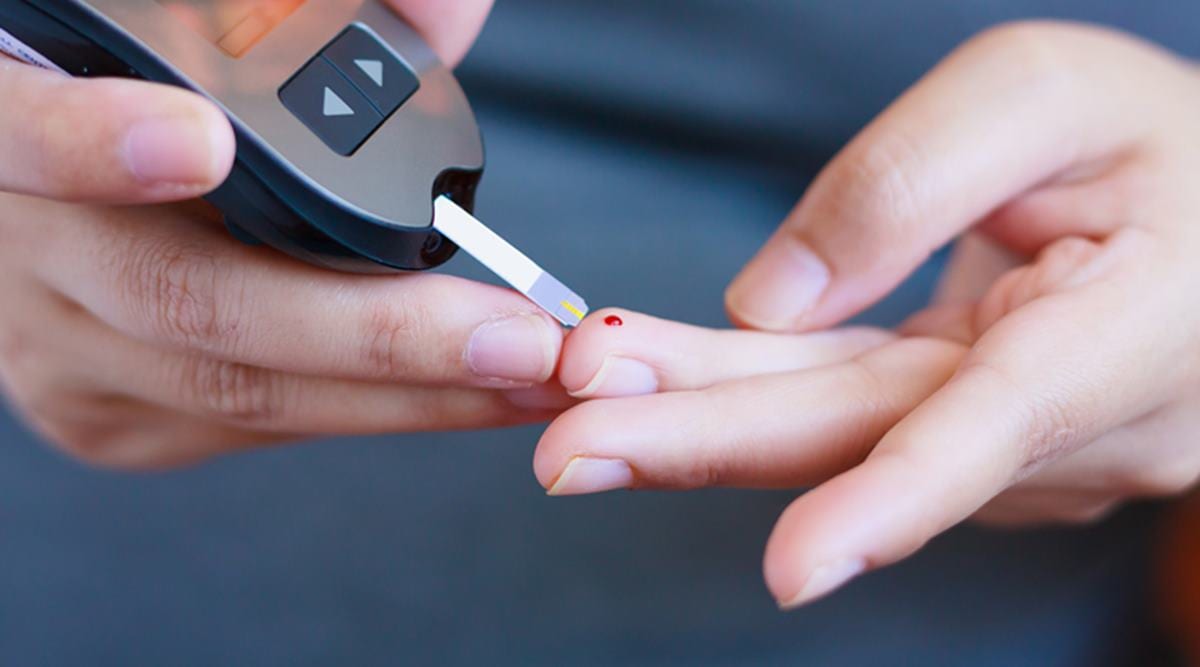Blood sugar level fifth vital parameter for good health: Experts
For more than 100 years, temperature, pulse rate, blood pressure and respiratory rate were the four vital signs routinely recorded by doctors and nurses.

A team of scientists who conduct research on diabetes has suggested that level of glucose in blood should be considered as the fifth vital sign in terms general wellbeing for all hospitalized patients, irrespective of whether they have diabetes or not.
The experts have recommended this for all patients regardless of their illness that led them to hospitalisation. For over 100 years so far, four vital signs – temperature, pulse rate, blood pressure and respiratory rate – were routinely recorded by doctors and nurses to decide on a patient’s overall health condition.
The current recommendations, published recently in Diabetes and Metabolic Syndrome: Clinical Research and Reviews, a journal, came from a consensus group which include Padma Shri Prof Anoop Misra (New Delhi), Dr Akhtar Hussain (Norway, President Elect, International Diabetes Federation), Dr Leszek Czupryniak (President, Poland Diabetes Association), Dr Itamar Raz (Head, Israel National Council of Diabetes), Dr Banshi Saboo (President, RSSDI), Dr SR Aravind (President, DiabetesIndia), along with Dr Jothydev Kesavadev (Trivandrum, Kerala), the lead author of the group.
The experts conducted an analysis of around 20 published studies and the recent robust data from Covid-19 hospitalisations around the world, Dr Kesavadev told The Indian Express. Studies, till date, indicate that blood glucose, in the upper normal, mildly hyperglycemic, or hypoglycemic ranges adversely influences hospital outcomes in those not known to have diabetes previously. This may be particularly important in developing countries where a considerable number of individuals are at risk for developing hyper-glycemia.
Blood glucose is a requisite for the body to maintain normal metabolic processes. Any deviation from the normal range of blood glucose may have adverse consequences and contributes to morbidity and mortality. Thus, blood glucose is one of the important parameters for prognosis in any disease, signifying its documentation as an essential part of clinical monitoring, Dr Kesavadev, who is founder chairman and managing director of Jothydev’s Diabetes Research Centres in Trivandrum, Attingal and Kochi, Kerala, explained.
“Despite not being diabetic, some Covid-19 patients, who have moderate or severe illness and are on steroids, have shown to have high blood glucose levels. For instance, I am monitoring a 41-year-old Covid-19 patient with no incidence of diabetes but the patient’s blood sugar levels are 320,” Dr Kesavadev said while explaining how important it was to follow the new recommendation by doctors and nurses in all specialties to reduce the number of days and help bring down cost of treatment in hospitals.
“Taking all details into account, we say it is necessary to have a blood glucose test right at the beginning specially in hospitalised patients regardless of diabetes. Blood glucose needs monitoring especially in patients who are fairly sick,” said Prof Misra who was part of the consensus group.
“Undiagnosed blood sugar is quite prevalent in India. And the moment when a patient in hospitalised care is under stress, the blood glucose levels go high as many of them are pre-diabetic. It may also come down in some cases or glucose variability may occur,” Prof Mishra added. The team has been working on the research for the last two-three months along with international experts.
It has been conclusively proven that minimal variations in the glucose, both high and low in patients without diabetes and pre-diabetes, significantly increase morbidity, severity and duration of hospital stays. Glucose variability (GV), defined as levels of glucose below and above the acceptable limits, is found to be directly related to increasing severity of the underlying disease even in subjects without diabetes.
Routinely all over the world, blood glucose is part of the protocol only in those subjects with established diabetes. However, if measurement of glucose is followed for all illness as per the recommendations, it is supposed to drastically bring down the progression to disease severity, number of days in the hospital and overall cost of treatment.
With Jayashree Narayanan in Pune
Source: Read Full Article
